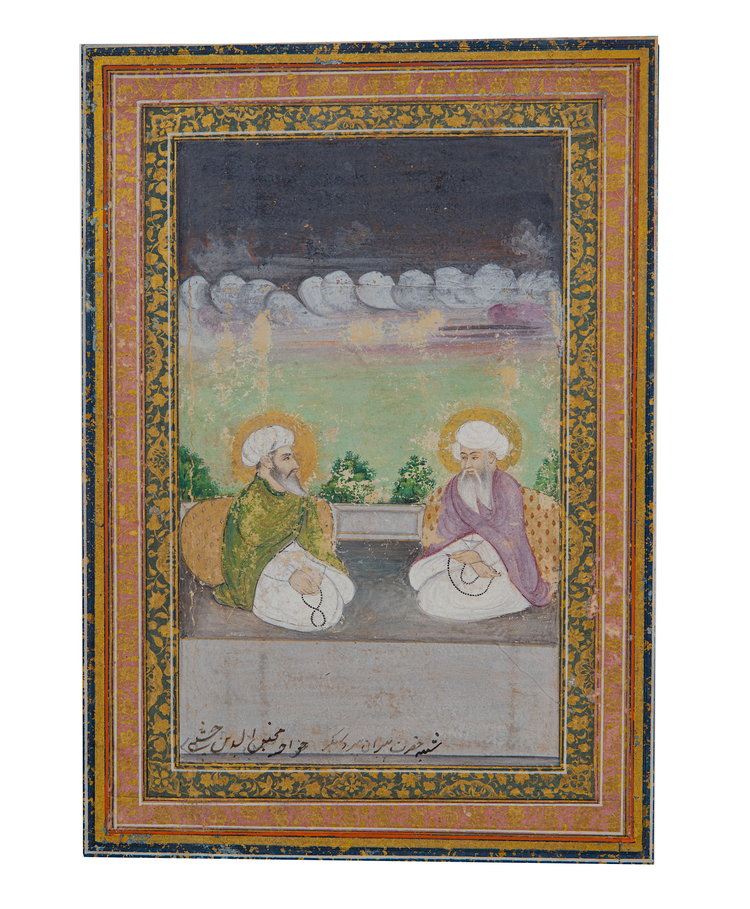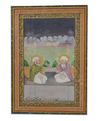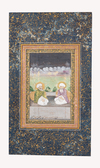ABD AL-QADIR JILANI AND KHAWAJA MU'IN AL-DIN CHISHTI IN CONVERSATION, INDIA SCHOOL, 19TH CENTURY
Opaque pigments heightened with gold on paper, the composition depicting two seated Imams, Jilani and Chishti in a fenced garden, both characterized by flaming haloes, green being the colour of Islam and the golden circle surrounding the halo a clear reference to solar symbolism, the books in front of them and the rosaries in their hands clear indications of their pious and educated nature, the scene set within golden and polychrome rules and burgundy red borders with golden floral trellis 11 by 18 cm.
The recto: Persian manuscript on paper, two lines of nastali'q script in black ink, ruled in polychrome and gilt borders 7.5 by 19.5 cm.
Miniature: 22 by 38 cm.
Catalogue note:
Abd al-Qadir Jilani (1078 - 1166 AD), the founder of the Qadiriyyah tariqa (Sufi order), was a native of the Persian province of Gilan. At the age of eighteen, he went to Baghdad to pursue the study of Hanbali law. After completing his education, he spent twenty-five years wandering in the deserts of Iraq. In 1127, he returned to Baghdad to teach and preach. One of his honorific titles is Muhiyudin, denoting his status as "reviver of religion".
Khawaja Mu'in al-Din Chishti (1143 - 1236 AD), instead, was a prominent and charismatic spiritual preacher and teacher in Islamic India. He was also of Persian origin, but rather than settling in the Near East, as Jilani did, he decided to travel to Lahore. He played a crucial role in establishing the Chishti order of Sunni mysticism in the Indian Subcontinent.



